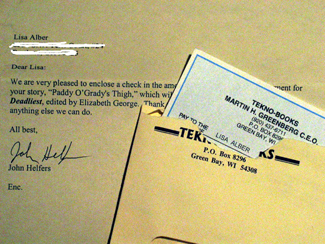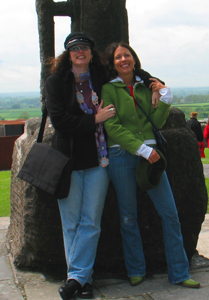Last weekend I had an epiphany about the scene that will usher in my story’s resolution. I worked all afternoon for that darned epiphany. And thank goodness, because I’d been writing in fits and starts for a good three weeks, stymied by a lack of vision.
Desperate times called for desperate measures. I reluctantly employed the what-if brainstorming strategy. I say “reluctantly” because I first witnessed this technique at a writers workshop, and it struck me as lame. It didn’t help that the workshop facilitators were snide and sometimes just plain mean — a schtick meant to be funny but that left me cold. Until last weekend, I had obstinately refused to play the what-if game.
 I jotted every cockamamie idea that popped into my head and forced myself to what-if my way past random nonsense. “Okay, back to the what-ifs. What if…?” After awhile, a deceptively simple thought arose: a surprise action from an unlikely character. Seemed so obvious I wondered why I hadn’t thought of it before.
I jotted every cockamamie idea that popped into my head and forced myself to what-if my way past random nonsense. “Okay, back to the what-ifs. What if…?” After awhile, a deceptively simple thought arose: a surprise action from an unlikely character. Seemed so obvious I wondered why I hadn’t thought of it before.
So, good, but I still wasn’t THAT clear. I needed a visual. All I had was a maddened man floating in space. About then, I decided that a wee creative nap was in order.
I set myself to drifting in a conscious way. (Not that I didn’t fall asleep also — delicious!) Low and behold, a strange thing happened; the perfect scenic image drifted into my head.
I’m not a big believer in waiting for inspiration. Sometimes it arrives on its own, true, but more often it needs a little push by way of mind games that get me out of my own way.















